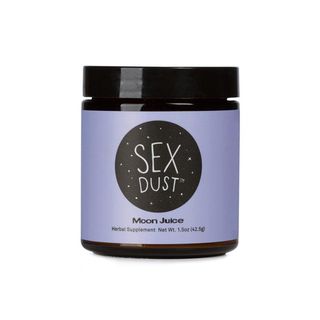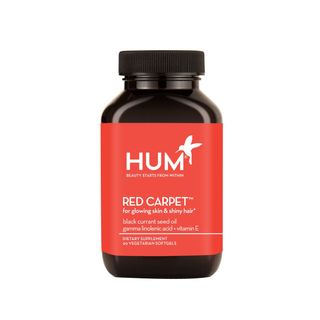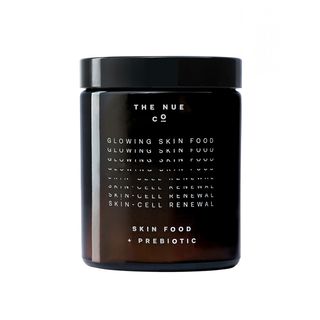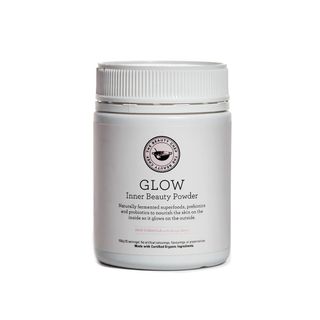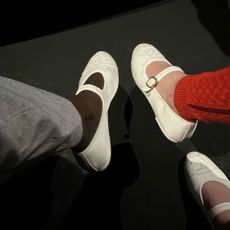Has Our Supplement Obsession Gone Too Far?
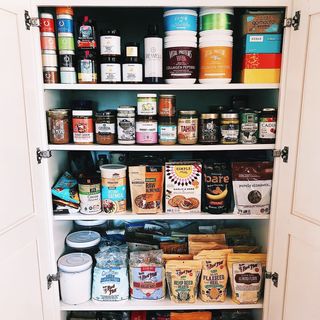
Nowadays, it seems like there’s a product to fix all of your problems. Energy levels running on empty? Sprinkle some dust into your smoothie for a quick boost! Supplements and vitamins have been around forever but weren’t widely discussed until around 1912. Fast-forward to when the Food and Drug Administration passed the Dietary Supplement Health and Education Act of 1994 to enforce some form of regulation and give consumers better “access to current and accurate information about supplements.” Shortly after this went into effect, Perricone MD started introducing science-based supplements to the market in 1999. It wasn’t until Moon Juice founder Amanda Chantal Bacon made some noise with her blends of adaptogenic superherb dusts that people started viewing supplements as an enhancement for food.
Now dietary supplements are practically everywhere in the form of pills, powders, potions… You name it! They’re all available at our fingertips, whether we choose to head to the nearest drugstore or supermarket IRL or online shop. The FDA defines supplements as “a product intended for ingestion that contains a ‘dietary ingredient’ intended to add further nutritional value to (supplement) the diet.” According to the Nutrition Business Journal, the supplement industry was worth an estimated $37 billion in 2015 and continues to grow at a rapid pace. As gut health becomes increasingly more important to the mainstream, it’s important for consumers to know which companies they can trust since it’s a self-regulated field that doesn’t require manufacturers to acquire approval from the FDA. The focus is finally veering away from diets as our attention switches to the internal mechanics.
Paula Simpson, a holistic nutritionist, biochemist, and co-founder of Zea Skin Solutions, says that this can be credited to the “cultural shift in how people want to take care of themselves, including their outer appearance.” She adds, “The notion of ‘hope in a jar’ is far behind us, as more people are listening to connection between what they consume and the effect it may have on their outer appearance. I don’t see this as hype or a trend but a shift in how we care about our health, vitality, and appearance.”
Obviously, it’s great that our accessibility to supplements is improving as more commercial spaces like Free People, Anthropologie, Selfridges, and Nordstrom stock products of this nature on their shelves, but the recent interest of beauty brands getting in on the trend also presents some potential red flags. Care/of CEO Craig Elbert says that “one of the biggest barriers people face in the vitamin and supplement space is transparency.” To him, a one-size-fits-all type of product wasn’t a realistic solution, which is why Care/of launched a subscription service to provide customers with an easy, personalized way to shop for premium vitamins online from the comfort of their homes. He adds, “In an industry overrun by false claims, asterisks, and a lack of transparency, access to quality can feel like a challenge.”
Back in January, RMS Beauty introduced dietary supplements to its roster—the women’s digestive enzyme and a probiotic—and Chillhouse launched a line of its own adaptogen powders at the cafe. Now that wellness gurus, bloggers, and coaches act as walking billboards to advertise supplements, there’s even more room for consumers who know virtually nothing about these types of products to fall between the cracks. There are so many different options at our disposal, and it can all feel incredibly overwhelming. Hum Nutrition co-founder Walter Faulstroh has mixed feelings about the lines getting blurred.
“While I love how wellness has become a major movement which translates into innovation, I also think that there is a lot of misinformation out there,” he says. “This is nothing new; it has just become a bit easier to amplify the wrong message via social. Having said that, I am a strong believer in consumers’ common sense and ability to see through what is genuine content and what is purchased praise.”
The Beauty Chef founder Carla Oates has been committed to promoting inner beauty from the belly through natural products ever since she created her first food-based probiotic powder in 2009. Her whole life philosophy pretty much revolves around the correlation between gut and skin health, and she’s made it her personal mission to educate people on “how to look at their skin more holistically and how what you put into your mouth affects it.” In addition to running her own brand, Oates is the author of Wellbeing Beauty Book, a natural-beauty columnist for WellBeing Magazine and a goodwill ambassador for Australian Organic.
“I’m really focused on helping people be the best, happiest, healthiest version of themselves and being aware of how important gut health is,” she says. “Seventy percent of your immune system relies on your gut—it’s where we make nutrients and the top enzymes, neutralize pathogens, and make neurotransmitters.”
A few months ago, The Nue Co launched a pop-up store in New York City. Throughout the 20-day run, customers had the opportunity to learn more about all of the organic supplements and closely interact with the brand’s owner and founder, Jules Miller. As a quiet observer, the biggest takeaway from the whole experience was watching how many people approached Miller and her team with questions like “What product do I need?” rather than addressing their specific concerns and identifying areas that could benefit from improvement.
“That’s always been something that I’m very focused on. I think that not having products that are specifically targeted at one benefit so that people can really hone in on them,” says Miller. “What can we create in supplement form that is as close to food as possible?”
Miller explains that supplements typically have to be powder based so that the natural ingredients won’t react with each other. The Nue Co’s products are on the pricier side because there are no fillers or chemicals in the ingredients. (Fun fact: The apothecary jars also preserve the products from heat and sunlight so they have a shelf life of a year.) “A lot of the chemicals are actually stabilizers,” she adds. “There are limitations with it, but customers want products that work and are prepared to go the extra step to ensure that it’s natural.”
The brands that are really serious about supplements all seem to have one trait in common, which is a foundation in science. “If we want to develop a trusting relationship with our customers, we really need to make sure that the products work, and usually the best way to do that is to fall back on a scientifically based formula,” says Miller. “We run studies before we launch the product so every formula that we release has to see 70% of the people who have tried it see a benefit.”
As a pioneer in the space, Oates has always worked with both a nutritionist and a microbiologist to ensure there is microbial diversity within the different probiotic strains that are used in The Beauty Chef’s supplements. She also believes that it’s just as important for consumers to look into a company’s history and philosophy as it is to research the integrity of the ingredients and where they’re being sourced from.
Perricone MD remains one of the most credible brands on the market because of Dr. Perricone’s background in dermatology, science, medicine, and nutrition. He claims that his company is the first to introduce “the concept of science-based cosmeceuticals and nutraceuticals that are researched, developed, and patented by a board-certified dermatologist.” Perricone believes that while it’s important to promote health-consciousness, people need to “make sure that any supplements you consider taking are formulated by a trusted brand and you consult a health professional.”
Many of the founders also organically entered the world of wellness after experiencing health issues such as eczema or irritable bowel syndrome. Faulstroh took an interest in developing better supplements after discovering that the root of his problem with adult acne was directly linked to his gut. The bigger question is does everyone actually need to be on supplements? Simpson believes that’s not necessarily the case.
“I think in today’s hectic and fast-paced lifestyle, it’s hard to eat well every day,” she says. “Supplements can help bridge that gap but also provide targeted nutrients and formulations to support condition-specific health goals, an energetic lifestyle, or promote healthy aging from inner health to outer appearance.”
Johane Filemon, a registered dietitian and owner of Wonderfully Nutritious Solutions, believes that supplements should only be taken if it is absolutely necessary for their health. “Supplements are supposed to support, not take over or be primary,” she says. “One of the problems is that we live in a ‘quick-results’ world. People are not wanting to put in the work for sustainable results. … What you for sure will be doing is eating for the rest of your life. Let’s make sure that your dietary lifestyle is the best it can be!”
Even though Miller runs a supplements brand, she also agrees that people shouldn’t become dependent on them for survival. “I don’t like the idea of people having to live on supplements all the time and taking like five different products to get through life,” she says. “Take them when you need them. You should be in tune with your body and know when you need the extra boost. It’s not healthy to completely rely on pills and powders to get you through life.”
Miller recommends that people make a commitment to altering their lifestyle and observing the results to figure out what actually works best for their bodies. At the end of the day, it’s about making an investment in your health by keeping track of your nutrient levels and listening to your gut. Brooke Alpert, a registered dietitian and author of The Diet Detox, says it best: “Supplements are meant to fill in the holes in your diet or lifestyle, not to fix them or radically change you.”
While ideally, you should check in with your physician before making any major changes to your diet and lifestyle, it's also worth assessing your own habits and well-being for any potential gaps. To this end, brands like Hum Nutrition and Care/of also offer quizzes and surveys for customers to take prior to placing an order. Simon warns consumers to “look for quality over quantity formulations and clinically validated ingredients over multiple ingredients and proprietary blends” that come from GMP-certified manufacturers and/or have third party–certified facilities. She also advises that people look for “naturally derived” products because the “all-natural” label can be a misleading claim among many others.
Recolonizing your gut doesn’t have to be a painful process, but it’s important to proceed with caution and continue to nourish your body. The future of gut health in connection to intestinal and digestive health is far from compromised, and supplements are merely one phase in the ongoing discussions around food intolerances, inflammation, and immunity.
“I think it’s here to stay. There’s still such a world of mystery in the gut’s microbiome, and we’re learning more and more about the correlation between gut health and so many diseases,” says Oates. “Gut health for me has always been a passion before it became trendy. It’s a journey.”
Disclaimer
This article is provided for informational purposes only and is not intended to be used in the place of advice of your physician or other medical professionals. You should always consult with your doctor or healthcare provider first with any health-related questions.
-
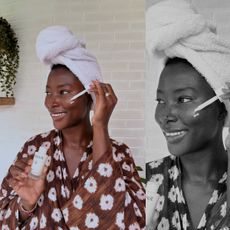 This Beauty Blogger's Wind-Down Routine Is Anything But a Snooze
This Beauty Blogger's Wind-Down Routine Is Anything But a SnoozeSee her go-to workout and her favorite vitamins.
By Virginia Yapp
-
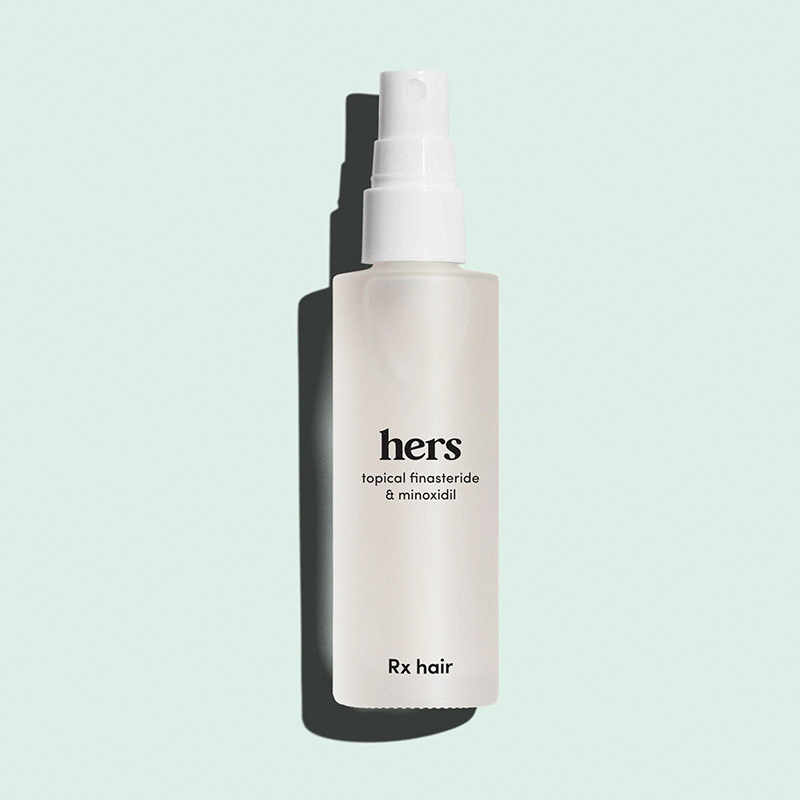 13 Products That Will Step Up Your Self-Care Game From Home
13 Products That Will Step Up Your Self-Care Game From HomeGet that glow from within.
By Natalie Gray Herder
-
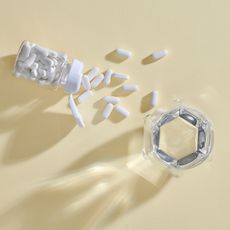 Don't Forget This Vital Ingredient When It Comes to Gut Health
Don't Forget This Vital Ingredient When It Comes to Gut HealthIt's crucial.
By Sarah Yang
-
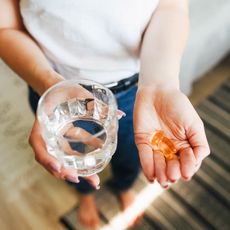 FYI: This Vitamin Affects Your Skin, Immune System, and Eye Health
FYI: This Vitamin Affects Your Skin, Immune System, and Eye HealthIt's a big deal.
By Sarah Yang
-
 This Fatigue-Fighting Solution Might Be Better Than a Cup of Coffee
This Fatigue-Fighting Solution Might Be Better Than a Cup of CoffeeIt will give you a boost.
By Sarah Yang
-
 Taking This Supplement Improves Sleep, Regulates Blood Pressure, and More
Taking This Supplement Improves Sleep, Regulates Blood Pressure, and MoreIt's an essential mineral.
By Sarah Yang
-
 The Only Wellness Deals Worth Buying on Amazon Prime Day
The Only Wellness Deals Worth Buying on Amazon Prime DayTime to shop.
By Sarah Yang
-
 Taking This Daily Supplement Can Give You Whole-Body Protection
Taking This Daily Supplement Can Give You Whole-Body ProtectionAre you getting enough of it?
By Sarah Yang
